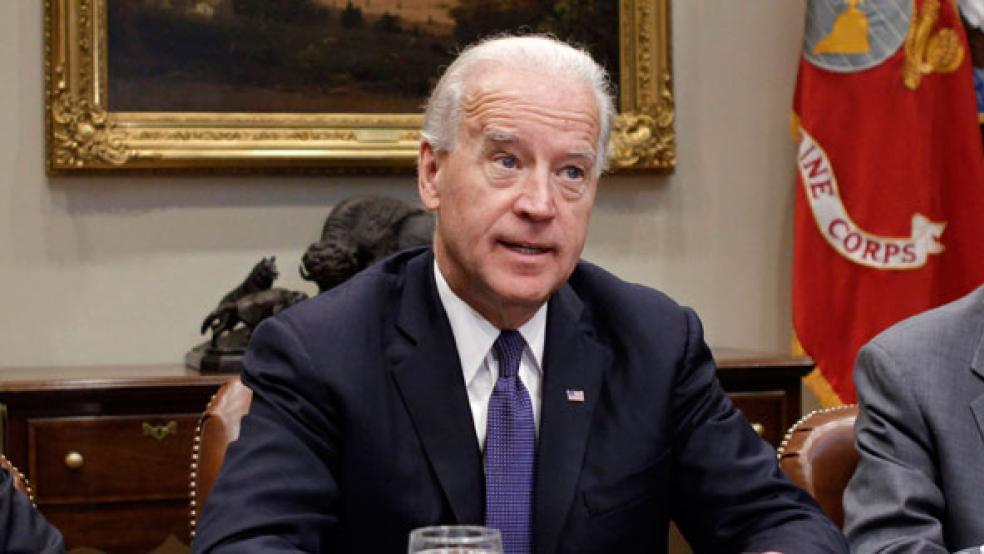Amid signs of a possible break in the stalemate between the Obama administration and Republicans over federal spending, a newly formed “Gang of Seven” gathered at the Blair House Thursday morning to begin negotiating a framework for a deficit-reduction plan and a solution to raising the debt ceiling. The congressional bipartisan task force created by President Obama is being chaired by Vice President Joe Biden, who has helped negotiate other important deals for the administration.
Prospects for the new arrangement appeared dim until yesterday, when Republicans indicated a willingness to compromise on some of the thornier issues in order to move toward a deal. House Budget Committee Chairman Paul Ryan, R-Wis., said he was “relatively optimistic” that Congress and the President would reach an agreement to raise the current $14.3 trillion debt ceiling before the early August deadline. House Majority Leader Eric Cantor, R-Va., told the Washington Post that reining in federal entitlement programs is central to stabilizing the nation’s finances, but said Republicans recognize they may need to look elsewhere to achieve consensus after President Obama “excoriated us” for a proposal to privatize Medicare.
Signs of public criticism of the GOP’s controversial long-term budget plan to overhaul Medicare during Congress’ two week spring break may be prompting Republican leaders to defer on politically dangerous entitlement reforms until after the 2012 elections. Republican leaders offered to consider a deal with the White House and focus on areas where both parties can find a consensus. The move comes after months of bickering over the much smaller 2011 fiscal year budget.
A spokesperson for Cantor stressed today that the House-passed 2012 budget that includes changes to Medicare, Medicaid and $715 billion in mandatory savings is still the official GOP position. “Whether the Democrats will agree to the proposals we've outlined is yet to be seen, but that is our starting point so we don't continue to kick the can down the road and make real cuts and real reforms this year,” said Laena Fallon, Cantor’s spokesperson.
Rep. Dave Camp, R-Mich., chairman of the House Ways and Means Committee, on Thursday told a Health Affairs forum that dealing with the long-term funding shortfall facing Medicare had to be part of any deal to raise the debt ceiling. He said Republicans had set down a marker for the discussions with their plan to give future seniors vouchers to support paying for private insurance plans, which passed the House last month as part of their overall deficit reduction plan.
On Tuesday, the two Republicans on the seven- member task force, Cantor and Senate Minority Whip Jon Kyl, R-Arizona, attempted to lay a foundation for the talks with a letter to Biden asking that President Obama put all of his cards on the table. They said in order for the talks to be productive, the President should submit a detailed deficit-reduction proposal—with cost estimates from the Congressional Budget Office—as well as the amount by which he wants to raise the debt ceiling. “Such information will be necessary to have meaningful discussions regarding a legislative framework,” they wrote.
Republicans initially balked at the idea of essentially another presidential deficit commission and expressed skepticism over the arrangement. Cantor was critical of the White House from the onset for failing to provide clear details and a defined mission for the new task force. He said the negotiations don’t appear to be useful.
The White House is hoping that the new “gang” can reach an agreement by late June, and now there are indications that Cantor and other Republicans are viewing the negotiations as an important forum. When asked on Wednesday about the forthcoming talks, Kyl said: “I have no reason to be optimistic or pessimistic.” The basic principle going into the meeting, he said, would be agreeing to specific constraints on spending – but not increasing tax revenue -- before raising the debt ceiling.
Senate Minority Leader Mitch McConnell, R-Ky., appeared more optimistic about the Biden talks. He predicted that the Biden-led effort will lead to a successful conclusion.
Assistant Democratic House Whip, Jim Clyburn, D-S.C., and Senate Appropriations Chairman Daniel Inouye, D-Hawaii., also expressed optimism. “Historically it’s been the House and Senate who could not agree on major legislation,” Clyburn told The Fiscal Times. “I am hopeful that this bipartisan group, under the leadership of Vice President Biden, will find the common ground needed to break with history and make meaningful strides in deficit reduction.”
The new task force comes after months of closed doors meetings by the bipartisan “Gang of Six”, an unlikely group of six senators –three Democrats and three Republicans—who have been trying to hammer out a long-term deficit reduction compromise to the tune of $4 trillion over 10 years. They were expected to release their blueprint this week but efforts stalled, placing pressure on the “Gang of Seven” to produce a deal that could help pave the way to a bipartisan agreement on the federal budget.
As Congress returns from a two-week recess, the two parties are far apart on how to deal with the federal debt, which will breach the legal $14.3 trillion debt ceiling by August 2, according to a forecast by Treasury Secretary Timothy Geithner.
Democrats and Republicans agree on approximately $4 trillion in long-term deficit reductions over the next decade or so, but how to get there is the major point of contention. It is expected to be a bruising debate, especially with the 2012 presidential and congressional election campaigns looming.
Here is a rundown of who will be sitting at the negotiating table beginning today and where each lawmaker stands on some of the most pressing political issues.
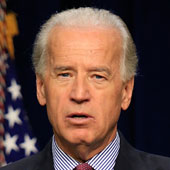 Vice President Joe Biden has earned the reputation as an “iron pants” negotiator whose never-say-die style served him well for decades in the Senate, as chairman and ranking member of the Foreign Relations Committee. But overseeing this new task force may test his bargaining skills.
Vice President Joe Biden has earned the reputation as an “iron pants” negotiator whose never-say-die style served him well for decades in the Senate, as chairman and ranking member of the Foreign Relations Committee. But overseeing this new task force may test his bargaining skills.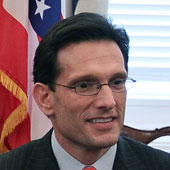 House Majority Leader Eric Cantor, R-Va.
House Majority Leader Eric Cantor, R-Va.
Medicare/Medicaid: His official position is that he favors tying the debt ceiling vote to Medicare and Medicaid reforms as outlined in the GOP 2012 budget, although that position began to soften on Wednesday. Medicare would be turned into a voucher-like program and Medicaid would be converted to a block grant program.
Debt Ceiling Increase: Any increase must be accompanied by spending reduction guarantees.
Tax Reform: He favors broad-based tax reforms that would eliminate a number of special-interest loopholes and exemptions, paired with a reduction in the overall tax rate.
Social Security: He would protect current benefits for those 55 and older and supports changing -- but not eliminating -- the program for those 54 and younger.
Defense spending: He favors cuts to the Defense Department budget as part of a deficit reduction program.
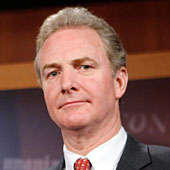 Chris Van Hollen, D-Md., Ranking member of House Budget Committee
Chris Van Hollen, D-Md., Ranking member of House Budget Committee
Medicare/Medicaid: His 2012 Democratic budget proposal does not address Medicare but he says GOP 2012 budget proposal to switch Medicaid to a block grant system is wrong.
Debt Ceiling Increase: Yes.
Tax Reform: He would bring back Clinton-era tax rates on the rich, target tax breaks for high-income individuals and corporations, and propose ”non-health mandatory spending cuts,” such as cuts to farm subsidy programs.
Social Security: He would use the model that Democratic House Speaker Thomas P. “Tip” O’Neill and President Ronald Reagan used, focused on making sure to shore up the long-term solvency of Social Security and keep it separate from other deficit-reduction politics.
Defense spending: He favors $89 billion in security savings over 10 years compared with current spending levels.
 Senate Finance Committee Chairman Max Baucus, D-Mont.
Senate Finance Committee Chairman Max Baucus, D-Mont.
Medicare/Medicaid: He would keep the current Medicare program, but with provisions for wealthy Americans, who would get fewer benefits. Cutting waste out of the health care system is the way to reform Medicare and Medicaid.
Debt Ceiling Increase: Yes. He supports a “debt failsafe trigger” proposed by the White House.
Tax Reform: He wants to simplify the tax system as a way to create more jobs and doesn’t want to rush the tax-reform process.
Social Security: He says that everything must be on the table and lawmakers should not scapegoat Social Security.
Defense spending: NA
 Assistant House Democratic Whip Jim Clyburn, D-S.C.
Assistant House Democratic Whip Jim Clyburn, D-S.C.
Medicare/Medicaid: He opposes the block-grant Medicaid proposal from the House GOP. He wants to expand health care reform to control costs.
Debt Ceiling Increase: Prefers a debt failsafe trigger as a starting point to raising the ceiling.
Tax Reform: He wants to allow the Bush-era tax cuts to expire for the wealthy, as a source $1 trillion in savings and focus on changing or eliminating special interest tax breaks.
Social Security: He wants to raise the cap on payroll taxes collected for Social Security in order to make it solvent. He opposes an increase in the retirement age, unless it is lowered for manual laborers.
Defense spending: He says cuts to the Department of Defense should be part of the deficit reduction package.
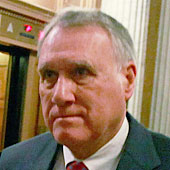 Senate Minority Whip Jon Kyl, R-Arizona
Senate Minority Whip Jon Kyl, R-Arizona
Medicare/Medicaid: He says there are ways to reduce Medicare expenditures to keep it solvent such as the voucher-like program proposed in the 2012 House GOP budget.
Debt Ceiling Increase: He will only support one if it is linked to strict long-term spending caps. He opposes any ‘debt trigger’ option that includes automatic tax increases.
Tax Reform: He is staunchly opposed to any tax increases. However, he is optimistic that both parties can find common ground on overhauling the tax system, including changes to corporate and individual tax rates.
Social Security: He doesn’t favor linking Social Security reform to the debt ceiling.
Defense spending: He is opposed to cutting the defense budget to help balance the federal budget.
 Senate Appropriations Chair Daniel Inouye, D-Hawaii
Senate Appropriations Chair Daniel Inouye, D-Hawaii
Inouye’s office did not provide the senator’s specific positions on these issues. The spokesperson said that in order to come to a comprehensive solution to our long-term budget challenges, Inouye believes that all parts of the budget, including defense and non-defense discretionary programs, entitlement programs and tax revenues must be on the table. Inouye favors raising the debt ceiling.
Eric Pianin and Merrill Goozner of the Fiscal Times contributed to this report
Related Links:
Cantor, Kyl Want More Info from White House on Debt Ceiling (Washington Post)
Clyburn: Debt Trigger a Good Starting Point for Biden Talks (The Hill)
GOP Tells Obama: Show Us Your Debt Ceiling Proposal (U.S. World News and World Report)

